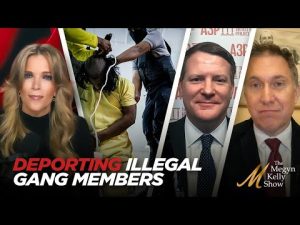In today’s tangled web of bureaucratic confusion, it seems the debate over the deportation of certain individuals, particularly those with questionable ties, is heating up. Amid accusations of hiding connections to potentially dangerous organizations, Mahmoud Khalil, a student at Columbia University, finds himself front and center in this legal tussle as the government seeks to revoke his green card. Embroiled in a maze of allegations, Khalil’s situation has raised eyebrows and brought the ever-complicated immigration policies under the spotlight once again.
Now, it’s been alleged Khalil didn’t disclose his ties to UNSA, that big Palestinian relief agency, on his green card application. According to some wise individuals who can actually make these decisions, this type of omission is pretty serious. Let’s not trivialize this—after all, how can the United States ensure its safety if people are sneaking in with hidden affiliations? It’s like trying to bake a cake without knowing if someone secretly swapped in salt for sugar. Doesn’t sound too appetizing, right?
Further complicating matters is the use of student visas, which some say are becoming a tool for foreign adversaries to slip into the U.S. under the guise of academia. Khalil’s case, paired with others, has ignited discussions on whether the student visa program is in dire need of reform. What’s the point of sending our kids to school to learn about algebra when international individuals are allegedly using that same setting to backdoor their way into our country with questionable intentions? Something doesn’t add up here.
Then there’s the broader picture, which is always painted with a dash of political color. The current administration is pressing the pause button on deporting individuals tied to certain transnational gangs, much to the concern of those triggering national security warnings. While some judges are getting cozy with the idea of keeping these folks around, others argue this sort of legal gymnastics goes against the intent of past wartime statutes like the Alien Enemies Act. What’s next, allowing the squirrels in our backyard to apply for residency because they might leave an acorn or two behind?
In the grand scheme, Khalil’s case is a mere stitch in the patchwork of larger debates surrounding immigration, national security, and policy enforcement. With each day bringing new headlines and developments, one might wonder if solving these issues will ever be as straightforward as finally finding that missing sock from the laundry. Until then, perhaps it’s time to re-evaluate the strange dance between academia and national safety. After all, juggling these issues isn’t as easy as it looks, especially when the stakes are as high as they are.







